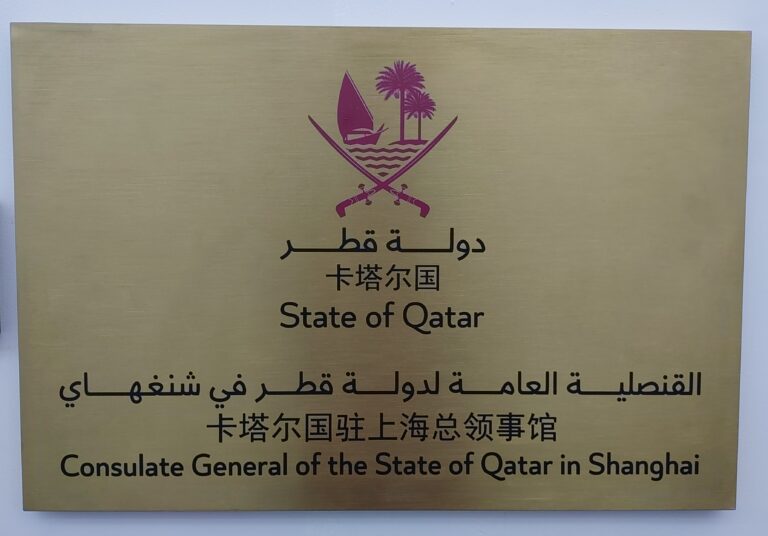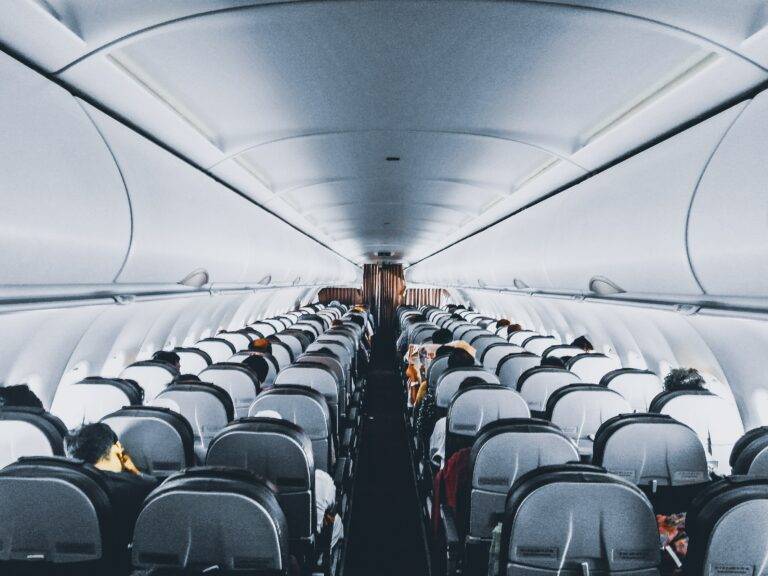
Legal Disclaimer: This guide is based on regulations current as of May 2025. Chinese tax law changes frequently. Always consult qualified tax professionals and verify current regulations with the State Administration of Taxation (SAT) before making financial decisions.
Foreign nationals working in China can benefit from specific tax-free allowances under the Individual Income Tax Law (2019 revision) and subsequent State Administration of Taxation (SAT) circulars.
However, these exemptions come with strict conditions, monetary limits, and documentation requirements that many expats overlook.
This comprehensive guide examines current regulations, eligibility criteria, and practical compliance strategies based on official SAT guidance and recent regulatory updates.
Legal Framework and Recent Changes
Key Regulations
- Individual Income Tax Law (2019 revision) – Effective January 1, 2019
- SAT Announcement [2019] No. 35 – Clarification on expat allowances
- Caishui [2019] No. 61 – Specific implementation rules
- Recent COVID-19 related circulars affecting business travel and home visit allowances
Important Note on Tax Residency
Your eligibility for these allowances depends heavily on your tax residency status in China:
| Residency Status | Criteria | Allowance Eligibility |
|---|---|---|
| Tax Resident | Present in China ≥183 days in any 12-month period | Limited allowances available |
| Non-Tax Resident | Present in China <183 days in any 12-month period | Broader allowance exemptions |
| Domiciled Individual | Chinese household registration or habitual residence | Most restricted allowance access |
Source: Individual Income Tax Law Article 1, SAT Announcement [2019] No. 35
Detailed Breakdown of Tax-Free Allowances
1. Housing Allowances
Legal Basis: SAT Announcement [2019] No. 35, Article 2
| Allowance Type | Tax Treatment | Conditions | Monetary Limits |
|---|---|---|---|
| Employer-paid rent | Tax-free | Direct payment to landlord with valid fapiao | No specific limit, but must be “reasonable” |
| Housing reimbursement | Tax-free | Actual expenses with valid documentation | Same property value limits as locals |
| Cash housing allowance | Taxable | Treated as regular salary | N/A |
Key Requirements:
- Valid Fapiao Required: Only official tax invoices (增值税发票) accepted
- Reasonableness Test: Housing costs should align with local market rates for similar positions
- Geographic Variations: Beijing, Shanghai, Shenzhen have higher “reasonable” thresholds than tier-2 cities
- Documentation: Rental contracts, payment receipts, employer payment confirmations
Common Pitfalls:
- Using personal receipts instead of official fapiao
- Claiming allowances for luxury housing beyond reasonable business needs
- Missing monthly reporting deadlines
2. Meal and Laundry Allowances
Legal Basis: Caishui [2019] No. 61
| Service Type | Tax-Free Conditions | Documentation Required |
|---|---|---|
| Cafeteria meals | Employer-provided facilities | Internal meal voucher system |
| Meal reimbursements | Actual business meal expenses | Restaurant fapiao with business purpose |
| Laundry services | Employer-arranged or reimbursed | Service provider invoices |
Important Restrictions:
- No cash meal allowances – must be in-kind or reimbursement
- Business purpose required for reimbursed meals
- Family meals excluded unless part of official business entertainment
3. Relocation and Moving Expenses
Legal Basis: SAT Announcement [2019] No. 35, Article 3
Eligible Expenses:
| Expense Category | Coverage | Documentation | Typical Limits |
|---|---|---|---|
| International flights | Employee + immediate family | Airline tickets, boarding passes | Economy class standard |
| Shipping/freight | Household goods, personal effects | Shipping company invoices | Reasonable volume limits |
| Temporary accommodation | Up to 30 days upon arrival | Hotel invoices, serviced apartment contracts | Local business hotel rates |
| Pet transportation | Animal quarantine, shipping | Veterinary and shipping certificates | Actual reasonable costs |
Key Compliance Points:
- One-time benefit per employment contract
- Direct work-related moves only (not personal relocations)
- Pre-approval recommended from employer HR and tax departments
4. Business Travel Allowances
Legal Basis: Individual Income Tax Implementation Regulations, Article 11
Tax-Free Components:
| Expense Type | Domestic Travel | International Travel | Required Documentation |
|---|---|---|---|
| Transportation | Train, plane, bus tickets | International flights | Official tickets/invoices |
| Accommodation | Business hotels | Standard business rates | Hotel fapiao with guest name |
| Meals | Reasonable daily rates | Local reasonable rates | Restaurant receipts for actual expenses |
| Local transport | Taxis, public transport | Local transportation | Transport receipts |
Important Updates (Post-COVID):
- Virtual meeting preferences may affect travel necessity justification
- Health and safety costs (COVID tests, quarantine) generally covered
- Extended stays due to travel restrictions handled case-by-case
5. Home Visit (Holiday) Allowances
Legal Basis: SAT Announcement [2019] No. 35, Article 4
Eligibility and Limits:
| Employee Category | Annual Trips | Family Coverage | Restrictions |
|---|---|---|---|
| Senior management | Up to 2 round trips | Spouse + children | Must be to home country only |
| Regular employees | 1 round trip | Employee only | Economy class standard |
| Long-term residents | May be reduced after 5 years | Case-by-case basis | Subject to reasonableness review |
Critical Requirements:
- Home country destination only (not third-country tourism)
- Annual frequency limits strictly enforced
- Actual travel required (no cash-in-lieu payments)
- Valid documentation: Flight tickets, passport stamps
6. Children’s Education Allowances
Legal Basis: Caishui [2019] No. 61, Education Provisions
Tax-Free Coverage:
| Education Type | Coverage | Limits | Requirements |
|---|---|---|---|
| International school tuition | Full tuition fees | No monetary limit if employer-paid | Must be registered international schools |
| School buses | Transportation costs | Actual costs | School-provided or approved services |
| Educational materials | Books, uniforms, equipment | Reasonable amounts | School-issued invoices |
| Language training (employee) | Chinese language classes | Professional development courses | Work-related training only |
Exclusions:
- Family members’ language training (taxable)
- Non-academic activities (sports clubs, music lessons)
- University tuition for adult children (limited coverage)
Documentation and Compliance Requirements
Essential Documentation Checklist
For Housing Allowances:
- [ ] Valid fapiao (增值税发票) from landlord or agency
- [ ] Rental contract with employer as payer or reimbursing party
- [ ] Bank transfer records or employer payment confirmations
- [ ] Property registration documents (if available)
For Travel and Business Expenses:
- [ ] Original flight tickets and boarding passes
- [ ] Hotel fapiao with employee name clearly shown
- [ ] Restaurant receipts for business meals
- [ ] Travel approval documents from employer
For Education Allowances:
- [ ] Official school invoices (学费发票)
- [ ] Enrollment certificates
- [ ] Payment confirmations from employer to school
- [ ] Academic year documentation
Monthly Reporting Requirements
Employer Responsibilities:
- Submit detailed allowance reports to local tax bureau by 15th of following month
- Maintain supporting documentation for minimum 5 years
- Provide annual summaries for employee tax filings
Employee Responsibilities:
- Retain all original receipts and invoices
- Report changes in family status affecting allowances
- Cooperate with tax bureau audits when requested
Risk Management and Audit Considerations
Common Audit Triggers
- Allowance amounts exceeding peer benchmarks in same industry/city
- Inconsistent documentation or missing fapiao
- Frequent changes in allowance structure
- High total compensation packages relative to role
Penalties for Non-Compliance
| Violation Type | Penalty Range | Additional Consequences |
|---|---|---|
| Under-reported allowances | 50%-500% of unpaid tax | Potential criminal liability for large amounts |
| False documentation | Administrative fines + full tax liability | Possible visa/work permit impact |
| Systematic non-compliance | Corporate penalties for employer | Increased audit frequency |
Maximizing Tax Benefits: Best Practices
Contract Negotiation Strategies
Recommended Allowance Structure:
- Negotiate employer-paid housing rather than cash allowances
- Include specific education allowance clauses with school payment arrangements
- Request annual home visit provisions with clear documentation requirements
- Establish business travel and relocation allowance frameworks
Tax Optimization Through Proper Structure
| Strategy | Tax Benefit | Implementation |
|---|---|---|
| Salary sacrifice for housing | Convert taxable salary to tax-free allowance | Employer pays rent directly |
| Education allowance timing | Spread costs across tax years | Plan payment schedules with school |
| Business travel planning | Maximize legitimate travel deductions | Combine business purposes where possible |
Double Taxation Treaty Considerations
Key Treaty Provisions Affecting Allowances
For US Citizens:
- US-China Tax Treaty Article 19 may affect certain allowances
- Foreign Earned Income Exclusion (FEIE) considerations
- Potential Form 8938 reporting requirements
For UK Citizens:
- UK-China Double Taxation Agreement specific provisions
- Statutory Residence Test implications
- Split-year treatment possibilities
For Other Nationalities:
- Review specific bilateral tax treaties
- Consider treaty tie-breaker rules
- Evaluate foreign tax credit opportunities
Recommendation: Consult tax advisors in both China and home country for treaty optimization
Recent Regulatory Updates and Future Considerations
2024-2025 Changes
- Enhanced digital documentation requirements for expense reporting
- Stricter reasonableness standards for allowances in tier-1 cities
- Increased audit focus on high-value allowance claims
Anticipated Changes
- Further digitalization of tax filing processes
- Potential harmonization of allowance rules with local Chinese employees
- Enhanced international information sharing affecting treaty benefits
Conclusion and Professional Advice
Tax-free allowances can significantly reduce expat tax burden in China, but the regulatory landscape is complex and frequently changing. Key success factors include:
- Proper documentation from day one
- Regular compliance reviews with qualified professionals
- Proactive contract structuring during employment negotiations
- Ongoing monitoring of regulatory changes
Strongly Recommended: Engage qualified Chinese tax advisors familiar with expat taxation and maintain relationships with professionals in your home country for comprehensive tax planning.
Sources and Additional Resources
Official Government Sources
- State Administration of Taxation (SAT): http://www.chinatax.gov.cn/
- Beijing Municipal Tax Service: https://beijing.chinatax.gov.cn/
- Shanghai Municipal Tax Service: https://shanghai.chinatax.gov.cn/
Legal and Regulatory References
- Individual Income Tax Law of the People’s Republic of China (2019 revision)
- SAT Announcement [2019] No. 35 on Individual Income Tax Policies for Foreign Individuals
- Caishui [2019] No. 61 Implementation Rules
Professional Resources
- China Tax Blog by Dezan Shira & Associates: https://www.china-briefing.com/news/category/taxation/
- PwC China Tax Updates: https://www.pwccn.com/en/tax.html
- KPMG China Tax Newsletter: https://home.kpmg/cn/en/home/insights/2023/01/tax-news-flash.html
This guide is provided for informational purposes only and does not constitute legal or tax advice. Tax regulations change frequently, and individual circumstances vary significantly. Always consult qualified tax professionals before making financial decisions based on this information.



